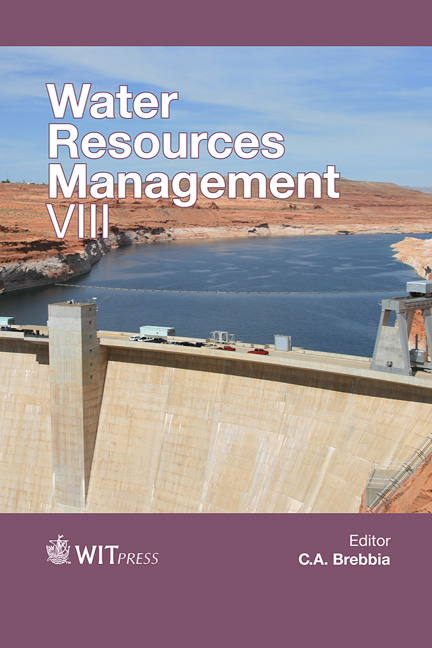Assessment Of Two Natural Wastewater Treatment Technologies To Improve Drainage Water Quality In The Nile Delta
Price
Free (open access)
Transaction
Volume
196
Pages
12
Page Range
375 - 386
Published
2015
Size
596 kb
Paper DOI
10.2495/WRM150321
Copyright
WIT Press
Author(s)
A. El-Hawary
Abstract
The conventional treatment techniques are efficient in wastewater treatment but their construction and operation costs are high. Natural treatment such as off-stream and in-stream wetlands proved to be effective, feasible and require low operation/maintenance costs, and no trained labor or added chemicals are required. These techniques have been applied in Egypt at a pilot scale. Lake Manzala Engineered Wetland (LMEW) on Bahr El-Baqar drain and Passive In-stream Wetland (PIW) in Faraa El-Bahwo drain are some of these projects. The objective of this study is to investigate the technical applicability of those two natural treatment techniques in the Nile Delta and assess the suitability of the treated effluent for reuse in agriculture. Both systems were visited to evaluate physical characteristics and design elements of each treatment system. Water samples were collected at different stages of each treatment system. The collected samples were analyzed for the Fecal Coliform (FC), Biological Oxygen Demand (BOD), Total Phosphorus (TP) and Total Suspended Solids (TSS). Monitoring results of LMEW showed that the overall treatment efficiency varies depending on the type and behavior of each pollutant. The removal efficiency in LMEW was as high as 98% for FC and as low as 57% for BOD. For PIW, the results showed that the overall treatment efficiency varies from 97.5% for FC to 38% for TP. For both treatment systems, the results show the possibility of reusing the treated water in irrigation according to the local regulations.
Keywords
engineered wetland, drainage water treatment, in-stream wetlands, off-stream wetlands, water quality, water reuse





